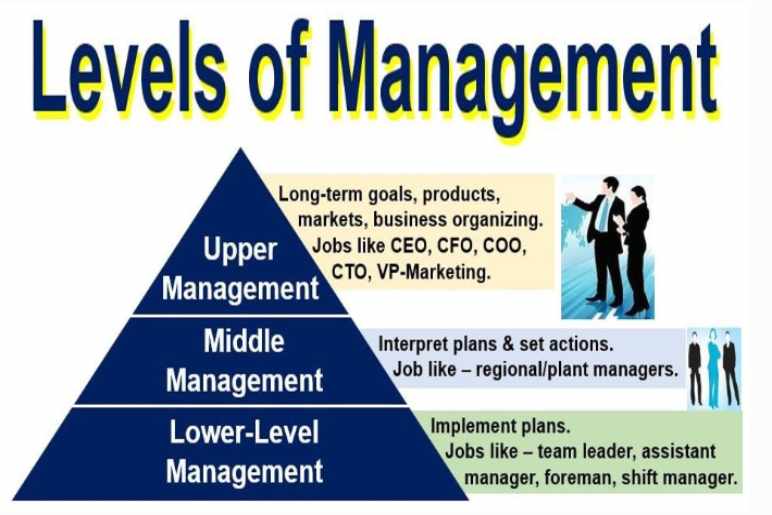A manager is an individual responsible for overseeing and administering a team, department, or project within an organization.
They play a crucial role in planning, organizing, leading, and controlling resources to achieve organizational goals.
The Etymology of “Manager”: From Horses to Humans

The word “manager” carries within it a fascinating journey through time and language. At its core, the term is deeply connected to the concept of handling and control.
The etymology of “manager” can be traced back to the Latin word “manus,” meaning “hand.” This root is shared with words like “manual” and “manipulate,” highlighting the connection to physical action and control.
From Latin, the word evolved into the Italian “maneggiare,” which initially referred to the art of handling horses. This is where we see the first connection to the modern understanding of management – the ability to control and direct.
Over time, the meaning expanded to encompass the management of people and affairs. The French adopted the word “manège,” which meant “horsemanship,” and later extended its meaning to “management.”
Ultimately, the English word “manager” emerged, signifying a person who oversees and controls a particular activity or group. This evolution from handling horses to handling human resources and organizational affairs is a testament to the adaptability of language and the changing nature of work.
Key Responsibilities of a Manager

A manager plays a pivotal role in an organization’s success. Their responsibilities extend far beyond simply overseeing employees. Let’s delve into the core duties of a manager:
Planning and Strategy
- Setting Goals: Defining clear and achievable objectives for the team or department.
- Developing Strategies: Creating action plans to achieve organizational goals.
- Resource Allocation: Effectively distributing resources (people, budget, equipment) to support objectives.
Leading and Motivating
- Building Relationships: Fostering a positive work environment and strong team dynamics.
- Providing Guidance: Offering support, mentorship, and coaching to team members.
- Inspiring and Motivating: Encouraging employees to reach their full potential.
- Conflict Resolution: Addressing and resolving disputes within the team.
Organizing and Directing
- Assigning Tasks: Delegating responsibilities to team members.
- Structuring Workflows: Creating efficient processes and procedures.
- Monitoring Performance: Tracking progress towards goals and providing feedback.
- Decision Making: Making informed choices based on available information.
Controlling and Evaluating
- Setting Performance Standards: Establishing clear expectations for team members.
- Measuring Performance: Evaluating employee and team performance against goals.
- Taking Corrective Actions: Addressing performance issues and implementing improvements.
- Analyzing Results: Assessing overall team and organizational performance.
Types of Managers: A Breakdown

Managers are the backbone of any organization, and their roles vary widely based on their position within the hierarchy. Let’s explore the different types of managers:
Top-Level Managers
Often referred to as C-suite executives, top-level managers hold the highest positions within an organization. They are responsible for overall strategic direction, making high-level decisions, and ensuring the company’s long-term success.
- Chief Executive Officer (CEO): The ultimate decision-maker, responsible for the overall performance of the organization.
- Chief Operating Officer (COO): Oversees day-to-day operations and ensures efficiency.
- Chief Financial Officer (CFO): Manages financial planning, budgeting, and reporting.
- Chief Marketing Officer (CMO): Develops and executes marketing strategies.
Middle Managers
Middle managers act as a bridge between top management and frontline employees. They are responsible for implementing strategies and achieving departmental goals.
- Division Heads: Oversee specific divisions or departments within an organization.
- Department Managers: Manage specific departments like sales, marketing, or human resources.
- Project Managers: Lead cross-functional teams to complete specific projects.
First-Line Managers
First-line managers, also known as supervisors or team leaders, directly oversee employees and daily operations. They focus on short-term goals and ensuring tasks are completed efficiently.
- Supervisors: Oversee a group of employees and their work.
- Team Leaders: Lead specific teams or projects.
Other Managerial Roles
- Functional Managers: Specialize in a particular function, such as finance or marketing.
- General Managers: Oversee multiple functions within an organization.
- Project Managers: Coordinate and manage specific projects.
Qualities of a Good Manager

A successful manager is more than just a title; they are a leader who inspires, motivates, and guides their team towards shared goals. Let’s explore the key qualities that define a good manager:
Leadership and Communication
- Visionary Leadership: Ability to articulate a clear vision and inspire others to follow.
- Effective Communication: Clearly conveying ideas, expectations, and feedback.
- Active Listening: Valuing and understanding the perspectives of others.
People Management
- Empathy: Understanding and sharing the feelings of others.
- Motivation: Inspiring and encouraging team members to reach their full potential.
- Team Building: Fostering collaboration and cooperation among team members.
- Conflict Resolution: Effectively managing disagreements and finding solutions.
Decision Making and Problem-Solving
- Critical Thinking: Analyzing information and making informed decisions.
- Problem-Solving: Identifying and resolving issues efficiently.
- Adaptability: Flexibility to adjust to changing circumstances.
Organizational Skills
- Time Management: Effectively prioritizing tasks and managing deadlines.
- Delegation: Assigning tasks appropriately to maximize efficiency.
- Planning and Organizing: Creating and implementing effective plans.
Technical Expertise
- Industry Knowledge: Understanding the industry and market trends.
- Business Acumen: Having a strong grasp of business operations.
Common Challenges Faced by Managers

Being a manager is undoubtedly rewarding, but it also comes with its own set of challenges. Here are some common hurdles that managers encounter:
People Management Challenges
- Building and Maintaining Relationships: Creating a positive work environment and fostering teamwork can be challenging.
- Employee Motivation: Keeping employees engaged and motivated can be difficult, especially during challenging times.
- Performance Management: Balancing providing constructive feedback with maintaining employee morale.
- Conflict Resolution: Effectively addressing disagreements and conflicts within the team.
Operational Challenges
- Workload Management: Balancing multiple projects and deadlines while ensuring team efficiency.
- Resource Allocation: Effectively allocating limited resources to achieve organizational goals.
- Change Management: Implementing new processes or systems while minimizing disruption.
- Decision Making: Making tough choices with limited information and potential consequences.
External Challenges
- Economic Conditions: Navigating economic downturns or upturns and their impact on the team.
- Industry Trends: Staying updated on industry changes and adapting accordingly.
- Competitive Pressure: Maintaining a competitive edge in the marketplace.
Manager FAQs:
Being a manager comes with its own set of challenges and questions. Here are some frequently asked questions about the role:
What makes a good manager?
A good manager is a blend of leadership, organizational skills, and empathy. They can inspire and motivate teams, make sound decisions, and foster a positive work environment. Effective communication, delegation, and problem-solving are essential qualities.
What are the biggest challenges faced by managers?
Managers often grapple with balancing competing priorities, managing employee performance, and adapting to change. Building and maintaining strong teams, resolving conflicts, and staying updated with industry trends can also be challenging.
How do I improve my management skills?
Continuous learning and development are crucial. Attending management training programs, seeking mentorship, and seeking feedback from employees can help improve management skills. Building strong relationships with team members and practicing effective communication are also key.
What is the difference between a leader and a manager?
While often used interchangeably, leaders inspire and motivate, while managers focus on planning, organizing, and controlling resources. Effective leaders are often good managers, but not all managers are leaders.
How can I delegate tasks effectively?
Delegation involves trusting your team members to take ownership of tasks. Clearly communicate expectations, provide necessary support, and empower employees to make decisions.
How do I handle employee performance issues?
Address performance issues promptly and privately. Use a constructive approach, focusing on specific behaviors rather than personal attacks. Offer support and guidance for improvement.
How can I motivate my team?
Recognize and appreciate employees’ contributions, set clear goals, and provide opportunities for growth. Create a positive work environment, foster open communication, and empower team members to take ownership of their work.
Read more:
- Blueface Net Worth, Lifestyle And Updates In 2024
- Alternatives to Payday Loans: Exploring Your Options
- Benefits of Selling Your Decommissioned Data Center Equipment
Featured Image source: https://tinyurl.com/38cjznhb

